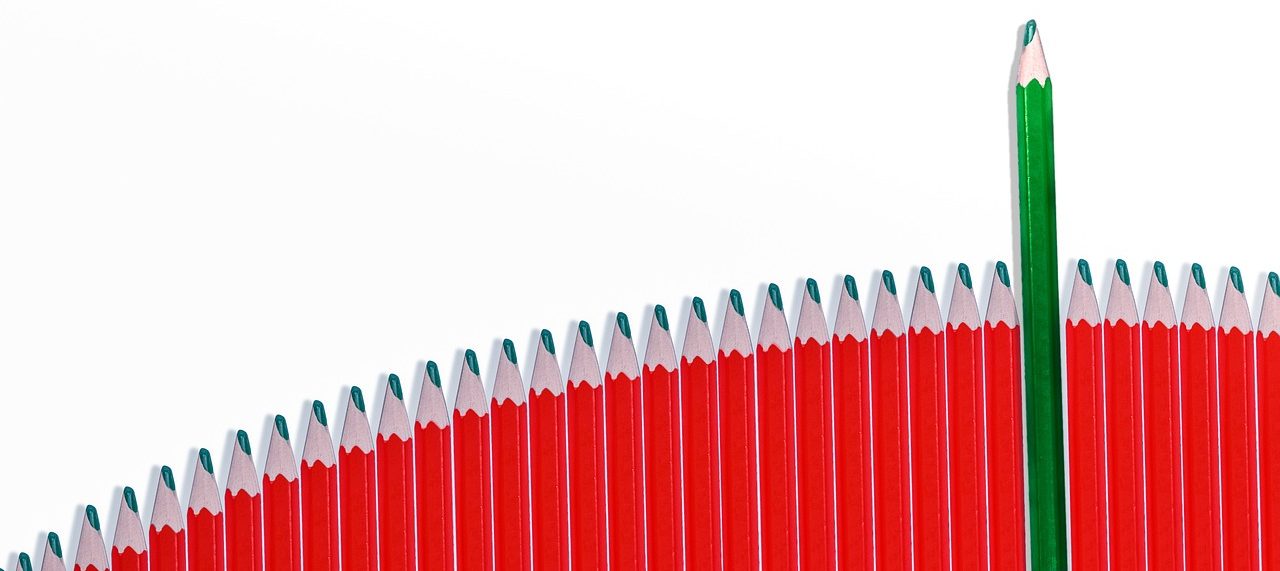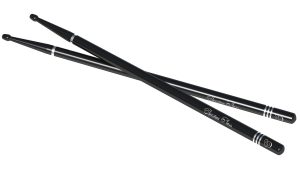Habits are a tricky thing. Every day we make hundreds of conscious (or often times unconscious) decisions that will dictate our life. Those habits, as small as they might seem, have a compounding effect on our lives and can make a profound difference months or years down the line. I’ve been thinking a lot about habit making recently. I recently bought a book call Atomic Habits by James Clear. In it, he talks about his habit making journey and how he used it to fulfill his potential. More importantly, he breaks down the steps you can take to either make a good habit or remove a bad habit. I thought it might be a fun idea to use some of the elements of his book to help those of you who find it hard to make guitar practice a habit.
Fulfilling Your Potential
The number one reason I see people not achieve their goal is simple, they don’t practice. A mentor of mine once remarked “The difference between a dream and a goal is a timeline and accountability.” I think back to that first day where the student walked in the door. Optimism beaming from their eyes, ready to tackle anything I threw at them. A week goes by after the first lesson. “How did it go?” I ask. “Good” they say. “I practiced five days this week for about fifteen minutes each.” For a beginner that’s more than a reasonable amount of time, especially if they’ve never picked up a guitar before. In the beginning I’m looking for consistency. I’d prefer seven days a week even if it was just for ten minutes but five days is a good start. We’re on the right track.

In my experience, the failure usually falls on the student not being able to turn guitar playing into a habit. Because just like most things, the time you put into something determines what you get back from it. How long you practice determines how well you play. It’s as simple as that. I’m not pretending that all people have the same natural talent on guitar. Some people will require more time than others, but the formula has never failed. I’ve seen people get good who are young, old, disabled, doesn’t matter. There’s even a guy on the internet who was born with no hands who plays guitar with his feet! If he can do it, anyone can do it!
I’ve had some truly extraordinary people come through my classroom. Some of those people were extremely talented. Some of them weren’t. What made them extraordinary though was not their level of talent, but their commitment and dedication. These are people who without question practiced 30 minutes a day almost every day. Some of them for more than that. These are people who lived up to their potential. And that’s my goal for every student who walks in. Helping them live up to their potential. Helping them realize their dream. But as the saying goes “You can lead a horse to water, but you can’t make them drink.” This is why I find habits so fascinating. Because even though we might be the horse, we can’t make ourselves drink even though we might know it’s good for us. We aren’t our own slaves. But, there’s always hope. And in my experience, trying to follow these rules certainly improves the likelihood that you can develop the habits you want or even remove the habits you don’t want.
The Four Laws
So what do you need to start or break a habit. James breaks it down into 4 steps which he calls the “Four Laws of Behavior Change”. These steps are as follows:
- Make It Obvious (Cue)
- Make It Fun (Craving)
- Make It Easy (Response)
- Make It Satisfying (Reward)
Today, we are going to examine the first step and talk about how you can start making guitar playing a habit.

Cue
So what does Cue mean? A cue is what triggers the initial desire to do something. A cue is what sets off the alarm bells in your head telling you “I have to do this now”. A cue is about noticing the reward at the end of the habit. When it comes to creating a good habit, we want to basically create a routine that tells us “once this happens, there’s no way I’m not playing guitar.” Cues come in many shapes and sizes and can be personal to each person. There’s no specific cue you have to use to get started playing guitar, however you should try and find something unique that you don’t do with anything else in your daily life.
Getting Started
I’ve found through recent examination that I have a ton of cues I use unconsciously in my life. The easiest one for me to pick out is when I go to the gym. I’ve been going regularly now for about four years. Some days are easier to go than others. Some days I’m well rested and ready to lift. Other days I didn’t get enough sleep and I’m tired and groggy. I’m dreading the moment I put the weights on the bar and have to lift. However, the one thing I don’t do until it’s time to go is pack my gym bag. I wait until it’s time to go to pack that bag every time. Why do I always wait until it’s time to go to pack? This might seem like procrastination, but there is a sort of ritual that’s being performed. You see, in my head, packing the gym bag is actually the first step to going to the gym. If I pack my bag the night before, I’m not actually going to the gym in that moment. In this scenario, when I pack the night before, I don’t actually start going to the gym until I’ve reached the gym. This adds more steps since it’s also a fifteen minute drive to the gym which just adds another barrier in my head making me not want to go to the gym. However, if I wait until it’s time to go and I start packing my bag just before I leave, my brain has now decided I’m at the gym. At the very least I’m definitely not skipping the gym. After all, I just packed the bag. There’s no way I just wasted my time packing a bag not to go to the gym!
This simple act of packing the bag before I go is the Cue I need to get started. Now for others, it might be something different. Plenty of people have there own pre-workout routine. Maybe it’s the food they eat or maybe they listen to a specific song or playlist. Maybe they have specific shoes they only use at the gym and putting on those shoes before they leave is what gets the ball rolling. The point is that it is the First Step that causes them to follow through with a long list of other steps.
Coming back to practicing your instrument, getting practicing on a regular basis also requires a cue. What can this cue be? Well, realistically it could be anything. Maybe there is only one room in the house that you practice in and so entering that room is the cue that gets you started. The cue could also be pulling out the material you’re about to practice. The act of taking out the book or sheet of paper you’re using is the first step of many in your playing ritual. It could be similar to one of my previous examples where your cue is a song that you listen to that gets you hyped to play. You often see athletes coming into a locker room with headphones on completing this same ritual. It’s possible your cue might not even be related to guitar at all. You may have decided to play guitar after dinner or after watching your favorite TV show. It may be the first thing you do after taking a shower, what you do when you come home from work, or before you finish your lunch break.
Be Specific
Many times, getting started is the hardest part. When you’re trying to start a new habit, you’re trying to make a contract with yourself. If you’ve ever read a contract, you’ll know that they are very thorough. Lawyers will spend days going over the details of a contract because the language needs to be specific. Similarly, you should be specific about your practice routine. Simply saying “I am going to practice fifteen minutes of guitar today” seems like a good idea on the surface. However, there’s a lot of leverage there. You can do a lot in twenty four hours. Even something more specific like “After dinner, I am going to practice guitar for fifteen minutes” still leaves a lot to interpretation. How long after dinner? Where will you be practicing? What will you be practicing? These seem like little things but when the moment comes and you don’t have the urge to play guitar today, your brain will do some incredible mental gymnastics to reduce your practice time, avoid the hard work, or not play altogether.
You need to be as specific as possible with your practice routine. A much more complete idea would be “I’m going to practice guitar on “X” day at “X” time for fifteen minutes in the living room. I will practice “X” exercise for 5 minutes and “X” song for 10 mintues.” There are a few key details you want to be precise about.
- Date
- Time
- Location
- Duration
These four details make sure you’re not going to negotiate your way out of the work later on. They also create a clear plan for what you should work on and help accurately measure your expected work load.
Make It Obvious
Many of our habits are context dependent. How you react can change very much dependent on your environment. You wouldn’t talk the same in a shopping mall as you would if you were in a movie theater. You don’t dress the same at home as you do at work. Our habits are often segmented based on what is happening around us and where we are. It’s important for developing new habits that we put ourselves in an environment that both makes us want to play as well as rewards and encourages us for our efforts.

Out Of Sight, Out Of Mind
When I get new students, often the first accessory I will recommend is a guitar stand. When you get home from guitar lessons, the first thing you might do is put the guitar in your bedroom. There it will sit in its case never to be seen until you remember to pull it out a day or two before guitar lessons. Because you never saw the guitar, the cue never kicked in telling you to play the guitar. If the guitar can’t be seen, you’re less likely to want to play it.
I always tell students the first thing they should do is take the guitar out of it’s case and put it some place you’ll always run into it. The living room is always a good choice if you can help it. I have students who travel a lot and have bought travel guitars to bring with them on business trips just so it’s always in their possession. I’ve also had students buy multiple cheap guitars and scatter them around the house so they are always tempted to play the guitar. I even had a roommate in college who used to keep a guitar in the bathroom so he could play on the toilet (not something I recommend but still a funny example.)
Removing Temptations
Just as important as promoting good habits are trying to remove bad habits. We live in culture where we have to have it now. Same day delivery from Amazon, instant streaming on Netflix, and tiny computers in our pockets make life a minefield of quick and easy distractions. I’m certainly guilty of it and I know the temptations. That’s why, when it’s time to work, I try as hard as I can to separate those parts of my life from the new habit I’m trying to build.
For example, when practicing guitar or working on a project (like writing this blog), I will remove my phone from the office while I’m working. Keeping those distractions away improves my focus and the quality of work during the allotted time. I also turn off as much other noise in the house as possible. Things like TV or maybe an online podcast or audio book get turned off while I’m practicing. Even if it’s just an exercise. I may even go as far as hiding the remotes for the TV, adding another barrier and making me less likely to abandon my current practice session.
For me, guitar playing is a part of my work so it happens in my office. But that’s not true for most people. Most people might practice in their living room or bedroom. People like to catalogue and segment their lives into pieces. The living room is where socializing happens, the office is where work happens, the kitchen is where cooking and cleaning happens. Mixing up guitar into that fold might seem out of place. But we can segment portions of our lives a lot more than you think. When I was a teenager first learning, I had a chair in my bedroom. This chair was where guitar practice happened. It was one of my cues. I never played games in the chair. I never used it to browse the internet. It had one purpose and one purpose only, to play guitar. There may be some place or object like that for you in your home that can be your “Guitar Playing” zone.
Conclusion
Whatever your cue is, make a conscious decision about what you want it to be so that you have no choice but to follow up. Make your guitar playing ritual specific so you can ensure you’re getting the practice you need to achieve your goals.
This is just Part 1 of how to make guitar playing a habit. Look forward to Part 2 coming soon!



